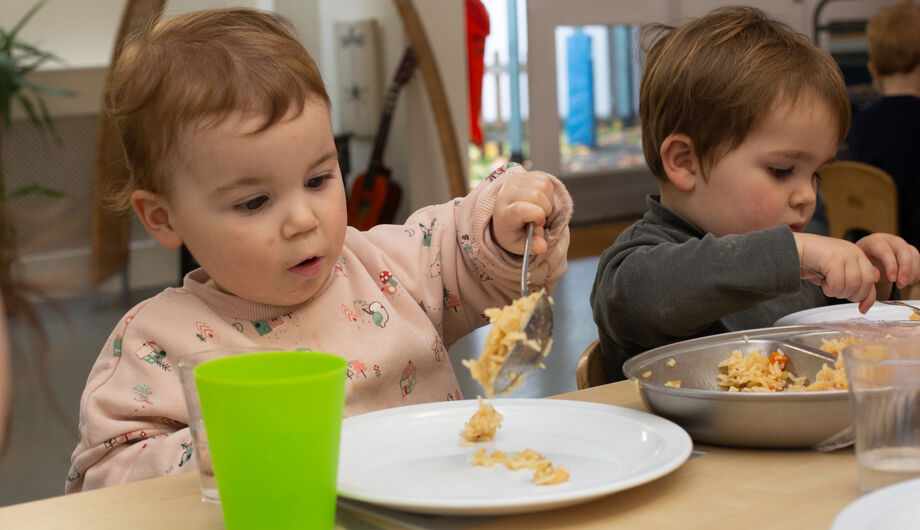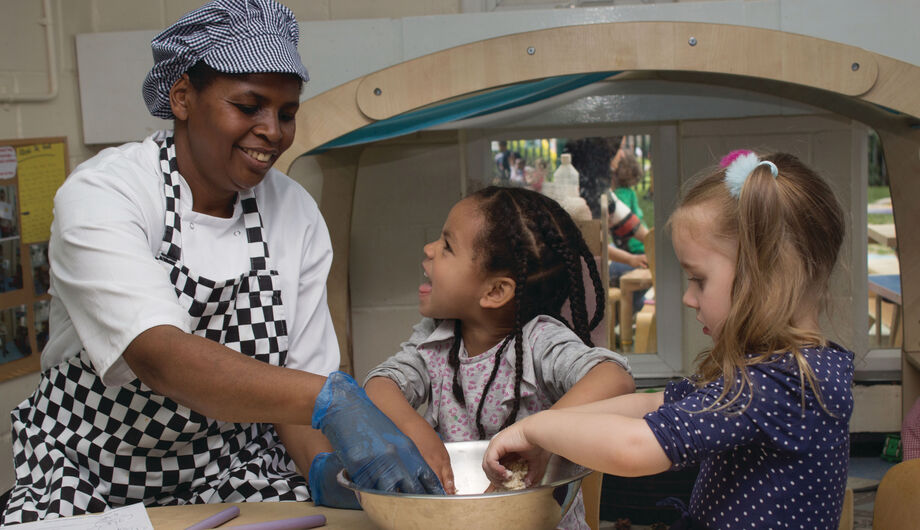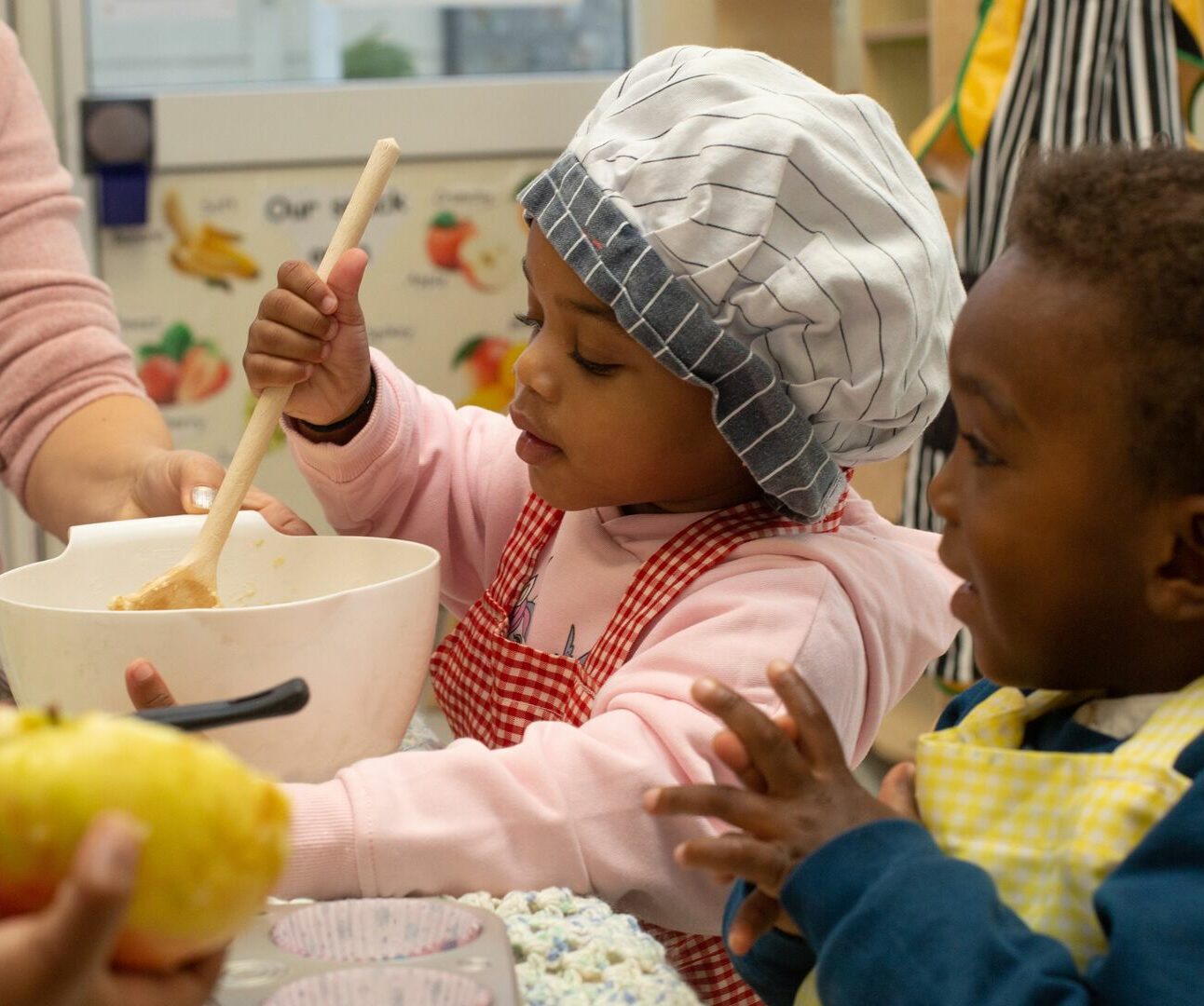
Fighting education inequality in the Early Years through food waste
An innovative partnership with City Harvest is helping us to plug a gap in Government funding and provide extra hours in nursery for children in need who are excluded…
September 22nd 2023
Access to good, nutritious, and balanced meals is becoming more challenging for some families each week, affecting the poorest and most deprived families the hardest. This is not just me saying it; a recent study showed that more healthy foods are up to three times more expensive per calorie than less healthy foods.
I lead the chefs at the pioneering LEYF Early Years Chef Academy. We set it up as one way to address emerging levels of obesity among children, especially those from more disadvantaged backgrounds. We wanted to train chefs to provide the children with the most nutritious food, reduce food waste and teach staff and families about healthy food.

Our theory is that by training chefs and enabling them to achieve a Level 3 CACHE-endorsed award, the chefs can provide guidance and support to staff and families whilst ensuring the children have varied, balanced, and delicious meals.
LEYF commissioned O’Donnell Research & Evaluation to evaluate our work and analyse our progress. Chefs, nursery managers and parents were contacted and asked about the food in their settings, staff knowledge, interactions with the children, and food engagement. The results of the impact research were overwhelmingly positive. What I found really heartwarming and encouraging was the chefs’ increased confidence in their ability to make a difference to children and families. This impact research has come at a fitting time, with OFSTED having just updated their reporting to include a more focused approach to evaluating the health and nutritional values offered in settings.
As a Chef with over 20 years’ experience, I was interested to learn that when they started the course, most of the chefs felt that their own skills were ‘excellent’. I probably would have thought the same entering any kitchen, regardless of the clientele.
The realisation that this is not the case was reflected in the responses following the chefs’ completion of training. One chef felt that Early Years Chefs would be surprised at how much the quality of their menus and food could be improved because they ‘don’t know what they don’t know’.
Many of the Early Years Chefs joining the Chef Academy training recognised that their communication with parents was poor. They were also a little panicked when they realised LEYF chefs are expected to lead food-related activities with the children. They were honest in their panic about that but enthusiastic to try!
By the end of the Chef Academy training, chefs were much more comfortable sharing their knowledge with staff and parents. They were also much more at ease with the children and learned from them.

A fantastic result of the Chef Academy course is seeing the impact it is having on the children; after all, they are the real reason the Chef Academy exists. The evaluation shows that children have enjoyed mealtimes much more since the chefs trained at the Early Years Chef Academy. The chefs have become much more engaged with the children, partnering them in play, sitting with them at mealtimes and planning and attending nursery outings. You can always tell when a chef has become part of nursery life because they are all on first-name terms. The more we learn about what we can do to improve children’s lives and educate each other, the closer we come to making real change for the world’s future generations.
The evaluation has highlighted key areas of improvement for me. I will refine some of my assessment methods, further support chefs during and following completion of the Chef training and forge a path for more Early Years Chefs to connect with each other through a Community of Practice.
Why don’t you sign up and join us for the next course in November?

An innovative partnership with City Harvest is helping us to plug a gap in Government funding and provide extra hours in nursery for children in need who are excluded…

Research shows that the experiences young children and babies have during their first five years has a long-term effect on their cognitive, emotional and physical development and their life…

A healthy population is the foundation of a strong and thriving economy, and that begins with our children. Poor diet is a leading cause of long-term illness and…